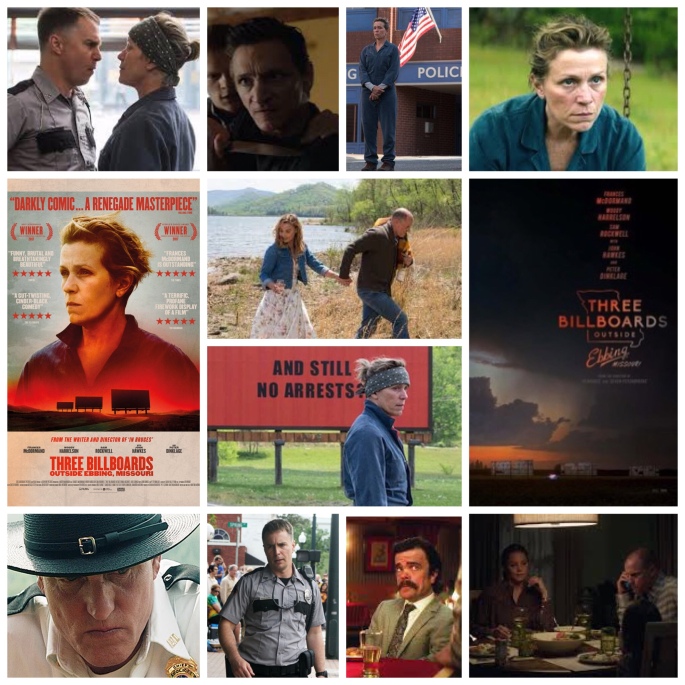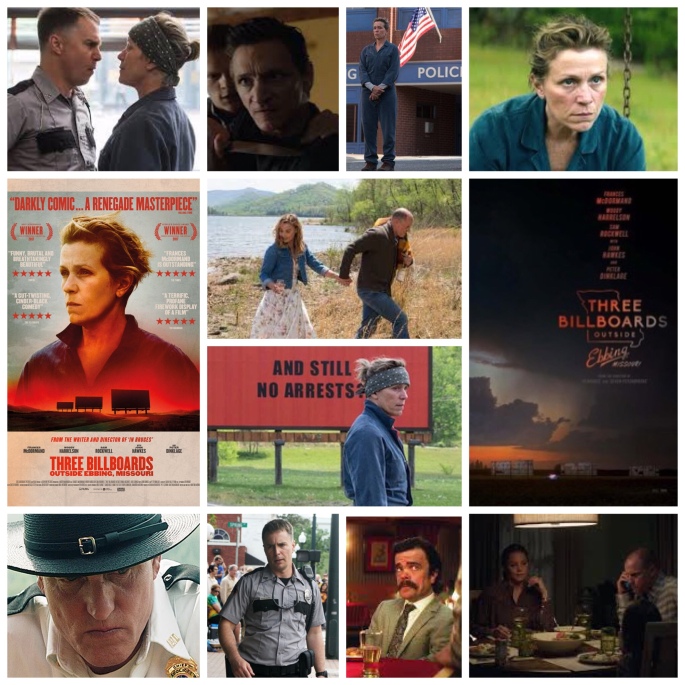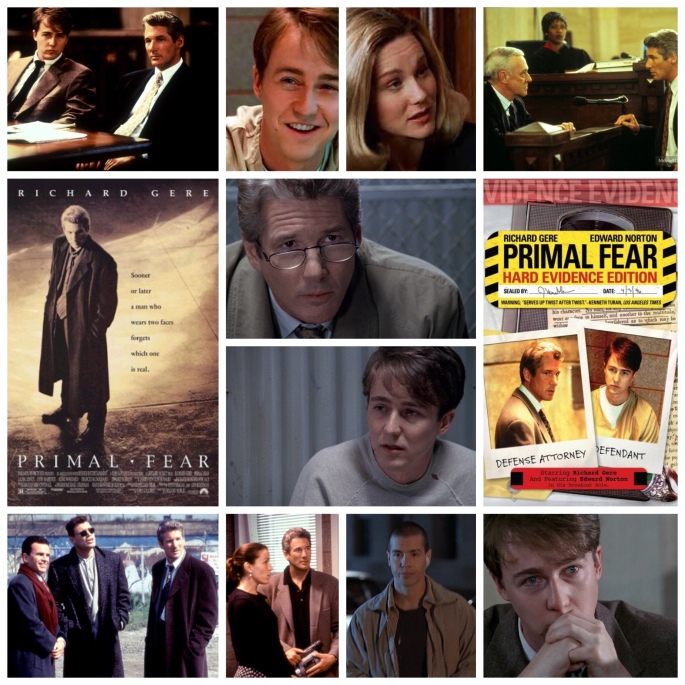
Wonder Boys (2000) is a redemptive tale of a college professor in the midst of a mid-life crisis. It is a film about faded glory and people past their prime. Curtis Hanson’s film is the kind of small, oddball little tale with a decidedly off-kilter, dark sense of humor and a cast of eccentric characters. It was a bit hit with critics but never quite connected with a mainstream audience due in part to a bungled initial promotional campaign that clearly did not know how to convey the quirky tone of the film into an easily digestible soundbite.
Grady Tripp (Michael Douglas) is a burnt out English professor that wrote a much celebrated novel entitled, The Arsonist’s Daughter, but has since been having a hard time with his follow-up. He keeps writing and writing with no end in sight (current page count sits at around 2,100+ pages). His young wife has left him and he’s sleeping with his boss’ wife, Sara Gaskill (Frances McDormand), who is also the Chancellor of the university where he works. His long-suffering editor Terry Crabtree (Robert Downey Jr.) is in town to take a look at the book. He maintains a “what me, worry?” façade but is in danger of losing his job unless he can find a potential best seller and applies subtle but definite pressure on Grady. The professor has also taken under his wing a brilliant but troubled student, James Leer (Tobey Maguire), from his creative writing class. He’s a tortured artist wannabe as evident from his habit of sitting in an empty, dark classroom. He is also ostracized by his classmates who resent his ability to write.
Producer Scott Rudin gave Michael Chabon’s book to screenwriter Steve Kloves. At first, he wasn’t interested – he hadn’t written a word in four years and had never adapted a novel before – but while reading the novel he connected with the material, “and a sort of kinship with Michael Chabon’s tone and the way he looked at his characters, with all their flaws, with a real generous spirit,” he said. Initially, Kloves agreed to adapt the book and talk about directing it but two and half years into working on the screenplay, he decided not to direct. After the success of L.A. Confidential (1997), Hanson was working on a script of his own and reading other scripts with a keen interest for his next film to be a comedy. Actress Elizabeth McGovern once advised him to work with Kloves and was given his screenplay. He was told that Michael Douglas was interested in playing Grady and was impressed by the way in which the characters were presented and “the lack of judgment on their actions and eccentricities.” In addition, Hanson “fell in love with these characters – and they made me laugh.”
Hanson told Rudin, “it’s too bad you can’t have Jean Renoir or Hal Ashby direct this.” Once Hanson was attached to direct, Kloves met with him and was relieved that they were both on the same page in terms of their approach to the material. Chabon encouraged Kloves to make the material his own and this included changing Grady’s Jewish in-laws to gentiles. Additional changes were made once Hanson came on board. For example, he felt that James Leer would be a fan of Douglas Sirk’s films as opposed to Frank Capra as he is in the novel. The studio wasn’t interested in making a quirky, character-driven comedy/drama until Michael Douglas agreed to work well below his usual large fee. One of the challenges for Hanson was to take a plot that he called “meandering and, apparently, sort of aimless,” and a character that “does things that even he doesn’t really know why he’s doing them,” and try to create a “feeling of focus” to keep the audience interested. Another challenge was working on actual locations in very cold weather and constantly changing conditions.
Hanson’s other concern was if Douglas would be willing to take on the role without a hint of vanity but also do it in a truthful way and not in a way that would draw attention to the fact that he was playing an unattractive character. To his credit, the actor disappears completely into this role. He’s not the first person you’d think of to play Grady. When he tries too hard to be funny it can come across as pompous, but he tones it down here and looks completely at ease, comfortable as the frumpy Grady. Douglas hits just the right notes of world-weary cynicism but with a romantic streak buried underneath. For the veteran actor it’s an unglamorous role – he gained 25 pounds for the role, eating pizza, subs and drank a lot of beer. He always looks rumpled, unshaven with unkempt hair and often wearing a ratty old housecoat when he writes. Grady has the capacity to do something about his miserable lot in life and during the course of the film his character undergoes a fascinating arc. In some ways, Grady is a pot-smoking burn-out like the Dude from The Big Lebowski (1998) only with slightly more ambition. He lives outside of normal society in the rarified atmosphere of academia — puttering around, writing his novel and teaching his writing class, but when he crosses paths with James Leer, Grady realizes that he’s got to change.
Wonder Boys also marked a break-out role for Tobey Maguire. Before he garnered massive mainstream exposure with Spider-Man (2002), he was known mostly for roles in small, independent films. Like everyone else in the cast, he has his memorable moments, like when his character laughs at Q’s (Rip Torn) pretentious speech at Wordfest with a high-pitched giggle that reverberates through the large auditorium. The blissfully stoned expression he gives afterwards is priceless. Everyone in the film keeps harping on what a genius writer Grady is, but it gradually becomes apparent that James is the true genius. He writes pages and pages of beautiful prose in minutes. And like any true talent, it just comes pouring effortlessly out of him. What makes James such a good writer is that his whole life is essentially a lie – he lies about his parents’ past, how they met and where they came from. He even maintains this air of a tortured artist but as we find out that too is a lie. James has it pretty easy, living in a large house in an affluent neighborhood. Good fiction writers have to be masters at making things up.
As always, Robert Downey Jr. knows how to make an entrance, meeting Grady at the airport with a transvestite as his date. The exchange between Terry and Grady quickly establishes their long-time friendship by the familiarity between them. Downey is able to take the most mundane, ordinary line and give it his own unique spin and make it funny or give a look that is memorable. His rapport with Douglas is excellent and they play well off each other as both sides of the comedic equation. Downey was on probation during the winter of 1999 when Hanson considered him for a role in Wonder Boys. The director was cautious because of the actor’s drug history and was concerned because it would be a tough film shot in sequence in Pittsburgh in the winter. Downey flew to Pittsburgh and had a long dinner conversation with Hanson where they addressed his problems. The actor demonstrated a commitment to the film and the director hired him. According to Hanson, Downey acted in a professional manner for the entire four-and-a-half month shoot but after it ended and he returned to Los Angeles, the actor violated his parole.
Frances McDormand knows how to react to those around her, like when she meets Grady, Terry and his date at a party. Watching her react to the charming transvestite is priceless. She and Douglas also have excellent chemistry together as evident in the short hand, the give-and-take between their characters. This is nicely established in their first scene together where Sara tells Grady that she’s pregnant. The music sets a slightly melancholic even whimsical tone as the two characters reveal that they are trapped in relationships that they don’t want to be in. They want to be together but Grady won’t show her how serious he is about them. Ultimately, Grady has to save himself and to in order to do this he must convince Sara that he does love and he want to be with her.
Steve Kloves’ script is a solid piece of writing as he does a great job of adapting Chabon’s book, trimming it of its excess narrative fat (as he also did so well with the Harry Potter books). It has clever, memorable dialogue that speaks volumes about these characters. There is a pleasant mix of off-kilter humor and poignant drama as we are presented with all sorts of colorful characters, like Grady’s bisexual editor and the famous and pompous writer known as Q (played to haughty perfection by Rip Torn) and then have them played by equally eccentric characters actors. The dialogue is humorous and offbeat in one scene, touching and thoughtful in the next. For example, in one scene, James rattles off a list of celebrity suicides in alphabetical order, the dates and how they did it in a mechanical monotone as if he’s reading off a grocery list that adds to humor of the scene because it is such an unusual moment.
Kloves also wisely avoids the usual clichés. like Katie Holmes’ character, the young, nubile co-ed who, in a lesser film would have had a fling with Grady. This would have broken the magical spell that this movie casts and so the filmmakers wisely avoid it. Instead, she helps Grady realize that his book is going nowhere and that he needs to make some choices about it and his life. One of the film’s major themes is about making choices. Grady’s problem is that he is indecisive. He can’t make up his mind about how he feels about Sara and he can’t figure out how to end his wildly out of control novel that is ultimately a metaphor for his life. Grady’s life is in a holding pattern, like his book and both get more complicated as life goes on. As the days go on so does the page count increase on his book. However, the key to his salvation lies in his mission to reach James and nurture his talents. Grady sees some of himself in James – a wonder boy in the making while he is a wonder boy who has lost his way. Terry is the third wonder boy in the film and his luster has been fading over years, unable to find another breakthrough novel like The Arsonist’s Daughter and is generally regarded as a joke at work.
Hanson strips color from the palette, presenting Pittsburgh in blues and grays, a romantic, post-industrial setting that we see through Grady’s car window. It’s subtly presented as Hanson doesn’t hit us over the head with obvious landmarks. He excels at creating just the right mood and atmosphere. For the director, the city mirrors the characters in the film as he commented in an interview, “it’s a city with this glorious past that went into decline…That’s why I wanted to shoot here. I think the city’s so emblematic of the characters’ problems.” The city was experiencing a mild winter during their shoot and they had to use a lot of artificial snow.
The best films are the ones that you lose yourself in completely. There is a scene where Grady sneaks a smoke outside of the Gaskill house at night and a light snow falls. He spies a greenhouse in the distance and it is illuminated in the night looking like “heaven” as James puts it. This is in contrast to the warm, gold interior of the nearby Gaskill house. This is a wonderful little moment frozen in time and the beginning of the friendship between Grady and James.
The attention to detail — a snowy winter in Pittsburgh — is beautifully realized. Hanson does a great job of conveying a sense of place, utilizing locations well. There is the warm, red and gold of a blues bar that Grady meets Terry and James at. It’s a small place packed with people and they sit in a booth that create an intimate feel. There’s a great moment where Grady and Terry spot an odd looking guy across the bar and create an elaborate and colorful backstory for him, including a name – Vernon Hardapple – and who is, among other things, “president of the James Brown Hair Club for Men.” Grady later encounters the man on a couple of very memorable occasions including a funny scene where Grady, Q and Terry try to evade Vernon outside of the bar that ends with the man jumping on the hood of their car with his butt. We see Q and Terry laughing and having fun as Grady tries to escape and in turn it is fun for us to watch.
Hanson had been a fan of Bob Dylan’s music since childhood and a great admirer of his soundtrack for Pat Garrett and Billy the Kid (1973). As it turned out, Dylan was a fan of Hanson’s previous film, L.A. Confidential and after a lot of convincing screened 90 minutes of rough footage from Wonder Boys. Hanson wanted Dylan because “who knows more about being a wonder boy and the trap it can be, about the expectations and the fear of repeating yourself?” In addition to Dylan, Hanson built the score around nine singer-songwriters including Leonard Cohen and Neil Young. The entire soundtrack is integrated into the film and Hanson even played some of the songs for the actors on the Pittsburgh set to convey a scene’s “aural texture,” as the director put it in an interview.
The studio decided to release Wonder Boys in February, notoriously the month where films no one cares about are unceremoniously dumped, and while it connected with critics, flopped at the box office. It came out a week after the Academy Award nominations were announced. The studio spent a lot more money promoting the films of theirs that were nominated and not enough on Wonder Boys. The Wall Street Journal‘s Joe Morgenstern praised Douglas’ work in the movie, but criticized the movie poster, which featured a headshot of Douglas: “a raffishly eccentric role, and he’s never been so appealing. (Don’t be put off by the movie’s cryptic poster, which makes him look like Michael J. Pollard.)” The Los Angeles Times‘ Kenneth Turan also slammed the poster: “The film’s ad poster brings Elmer Fudd to mind.”
Hanson was not happy with how the film was marketed, in particular the poster, which he said in an interview, made Douglas look “like he was trying to be Robin Williams.” Furthermore, he said, “The very things that made Michael and I want to do the movie so badly were the reasons it was so tricky to market. Since films go out on so many screens at once, there’s a need for instant appeal. But Wonder Boys isn’t easily reducible to a single image or a catchy ad line.” The director disagreed with the studio over the film’s original release date and advertising campaign. To make matters worse, the marketing was criticized in the press and in an unprecedented move, the studio canceled the lucrative video contract and pulled the film out of theaters. Hanson and Rudin lobbied to have the film re-released. A new campaign was designed that emphasized the ensemble cast and the film was released in theaters where it promptly flopped at the box office again.
Every scene in Wonder Boys feels warm and inviting and filled with interesting characters that inhabit this world and that allows you to be in it for the duration of the film. By hanging out with James, Grady regains that wonder boy spark while also guiding his young protégé to becoming one himself. What better teacher than someone who was once one? At one point, Grady says that most people don’t think and that books aren’t important anymore. He’s jaded and cynical about the world but over the course of the film James reaches him and changes his outlook on life.









